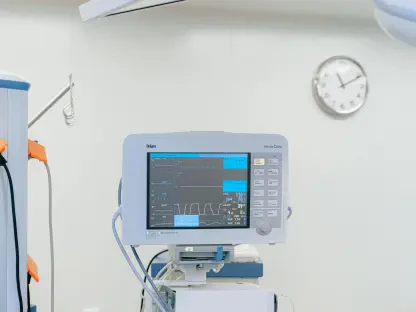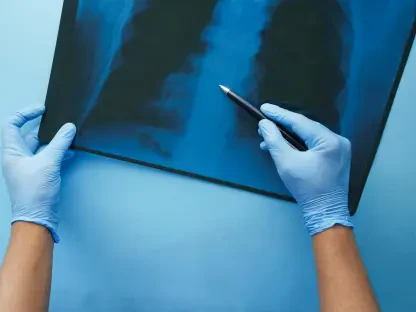Nebraska stands amid a substantial debate on medical marijuana regulation, spotlighting the complexities that surround its legislative journey. The proposed LB677 bill is at its core, reflecting division between Nebraska’s Attorney General Mike Hilgers and State Senator Ben Hansen, each presenting distinct perspectives on the need and methodology for regulating cannabis. The debate isn’t just about legislative details but also revolves around public sentiment, evident from a recent election where medical marijuana garnered significant public support. This backdrop sets a stage where Nebraska is pushed towards establishing a coherent framework that balances medical necessity with caution over potential recreational drift.
Divergent Visions in Marijuana Regulation
Attorney General Mike Hilgers articulates a cautious stance, expressing concerns that Nebraska’s LB677 might cross the boundary between medical and recreational marijuana usage. Hilgers specifically points to amendment AM1251 as a gateway that could diffuse regulatory clarity, especially with the proposal to allow sales of dried cannabis flowers. Such provisions, he argues, could open the door to illicit market activities and compromise the state’s regulatory framework. His apprehension underscores a broader worry about the socio-economic implications that may arise if marijuana regulation is perceived as too lenient, potentially inviting non-medical exploitation.
On the contrary, State Senator Ben Hansen advocates for immediate regulatory actions to facilitate medical marijuana access while maintaining necessary checks. Hansen identifies the current regulatory vacuum as a risk, where lack of clarity leaves patients in precarious positions with quasi-legal cannabis operations. His proposition emphasizes structured regulations, aligning with voters’ intent while safeguarding against misuse. Hansen supports limitations like the prohibition of smoking, favoring vaping as a controlled alternative, thereby responding pragmatically to public health concerns and seeking to refine Nebraska’s legislative response to medical marijuana demands.
The Intersection of Public Will and Regulatory Oversight
The ongoing debate captures the essence of regulatory oversight intertwined with public expectations, highlighting the struggle to find a middle ground. Both Hilgers and Hansen stand firm in their conviction to represent the will of Nebraskans, although their pathways diverge. Hilgers leans towards maintaining existing frameworks, viewing them as sufficient to tackle medical cannabis under current laws. Meanwhile, Hansen argues that these frameworks require updating to mirror voters’ preferences, urging proactive legislative intervention to address gaps that restrict medical cannabis access. This contention underscores a dynamic interface where public mandates must be reconciled with the state’s oversight responsibility.
This legislative crossroads signifies broader societal acceptance overcoming traditional reservations about cannabis, stratified by Nebraska’s cautious policy approach. Policymakers tread carefully, echoing national debates about how to navigate the fine line between granting access for legitimate health conditions and preventing potential misuse of controlled substances. This equation becomes all the more significant as states like Nebraska deliberate on the precise nature of regulations necessary to accommodate evolving public needs, reflecting a transformation in societal attitudes toward cannabis.
Societal Acceptance Versus Policy Caution
Nebraska’s discourse on cannabis regulation mirrors a larger narrative occurring across the United States, where increasing acceptance of marijuana for medical use is juxtaposed against legislative caution. The cautious approach endorsed by policymakers evidences a desire to prevent cannabis misappropriation while considering medical legitimacy. These discussions are set against a background of national conversations focusing on ensuring controlled substance accessibility for medicinal purposes without opening doors to recreational or unregulated usage. Methodical policy formulation becomes indispensable as Nebraska charts its course in the cannabis regulation domain, hemmed in by the imperative of striking a delicate balance.
Thus, Nebraska finds itself in alignment with nationwide trends advocating for responsible medical cannabis use, albeit cautiously. The deliberations, in essence, aim to address fundamental questions about policy, health, and societal well-being. Bounded by state-specific considerations, the debate opens avenues for reconsidering legislative approaches in an era where the therapeutic potential of cannabis increasingly finds acknowledgment. This cautious yet forward-moving dialogue resonates with a larger trajectory, positioning Nebraska within the folds of evolving cannabis regulations responsive to both public health and legal statutes.
Legislative Pathways and Political Influences
The legislative odyssey of LB677 through Nebraska’s corridors provides insight into the procedural intricacies associated with bringing a landmark bill to fruition. Amendments like AM1251 and corresponding committee responses illustrate the challenges impeding an unencumbered pathway for transformation. A key entity in this legislative arena is the Medical Cannabis Commission. Tasked with regulating specifics, it wields considerable influence over the bill’s future course. The Commission’s decision-making reflects broader political dynamics, where gubernatorial appointments and legislative interests continue to shape the regulatory landscape, affecting the nature and extent of cannabis policy.
This complex political interplay accentuates how gubernatorial and legislative partnerships affect cannabis regulation implementation in Nebraska. Executive directives considerably sway the Commission’s stance, navigating through challenges endemic to the bill’s progression. This unfolding drama sheds light on how political considerations intermingle within legislative actions, placing a spotlight on the fractured yet determined legislative resolve to meet Nebraskans’ long-unmet needs for accessible medical cannabis provisions. The ongoing deliberation remains a testament to the multifaceted nature of modern state governance and its adaptability in steering pressing public health policies.
Defining Medical Needs and Legislative Challenges
A contentious core in Nebraska’s pursuit of cannabis regulation is the delineation of medical conditions under LB677’s framework. Attorney General Hilgers raises concerns about the breadth of the listed conditions, warning against potential overreach. In contrast, Senator Hansen underscores the necessity of a broader scope, defending complexities inherent in specific medical conditions included in the legislation. This debate epitomizes the challenge of equating healthcare imperatives with legislative safety mandates, striving to respect patient needs while ensuring public well-being. The contrasts between Hilgers and Hansen’s outlooks underscore the difficulty balancing pragmatic judgment with empathetic healthcare access.
The conversation further illuminates an overarching struggle within the healthcare policy domain where quantifiable legislative data must coexist with qualitative human reality. The ongoing debate remains emblematic of broader efforts to align public policy with individual needs, illustrating Nebraska’s legislative momentum towards accommodating medical exigencies. Such intricacies poke at a fundamental thread within health policy discussions—how legislative prescripts intersect with patients’ voices to offer effective, compassionate solutions within controlled policy frameworks ensuring both accessibility and safety.
Broader Implications and Future Directions
Nebraska finds itself immersed in a heated debate over the regulation of medical marijuana, highlighting the complexities of its legislative path forward. Central to this dispute is the proposed LB677 bill, which serves as the focal point of differing views between Nebraska Attorney General Mike Hilgers and State Senator Ben Hansen. Hilgers and Hansen offer divergent perspectives on the necessity and methods of regulating cannabis, shaping the discourse around this topic. The conversation extends beyond legislative intricacies, tapping into public sentiment, which was clearly demonstrated in a recent election where medical marijuana gained substantial public support. This scenario sets the stage for Nebraska, compelling it to craft a balanced framework that addresses medical needs while remaining vigilant against potential shifts toward recreational use. The ongoing debate raises questions about how best to serve constituents’ medical needs while mitigating concerns of unintended consequences in recreational areas.









